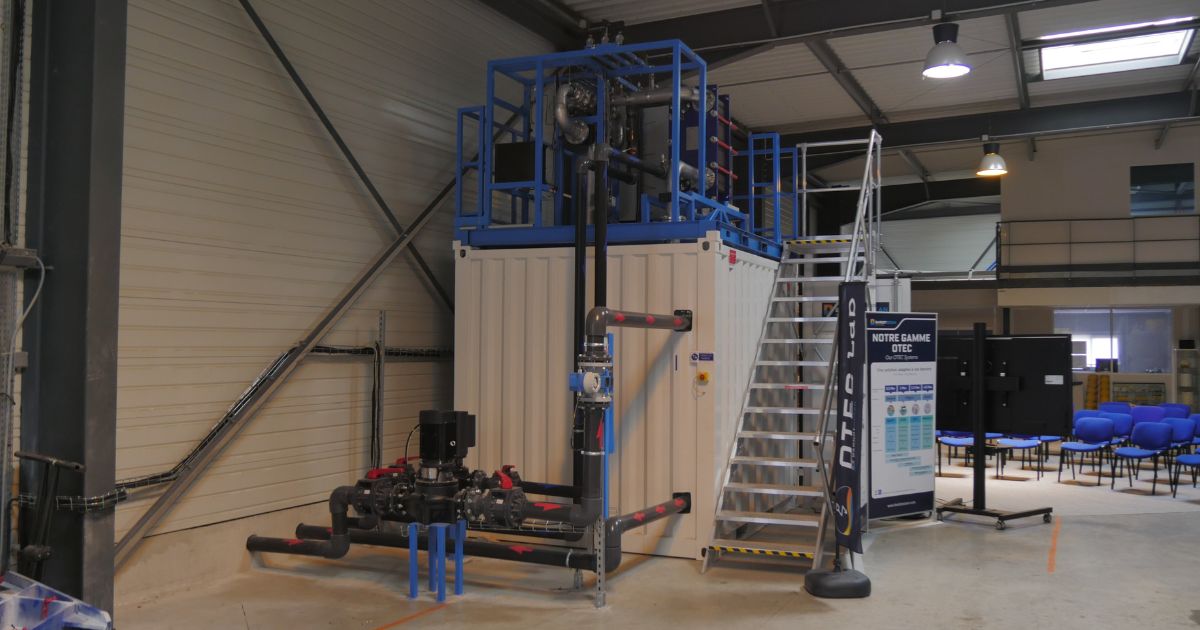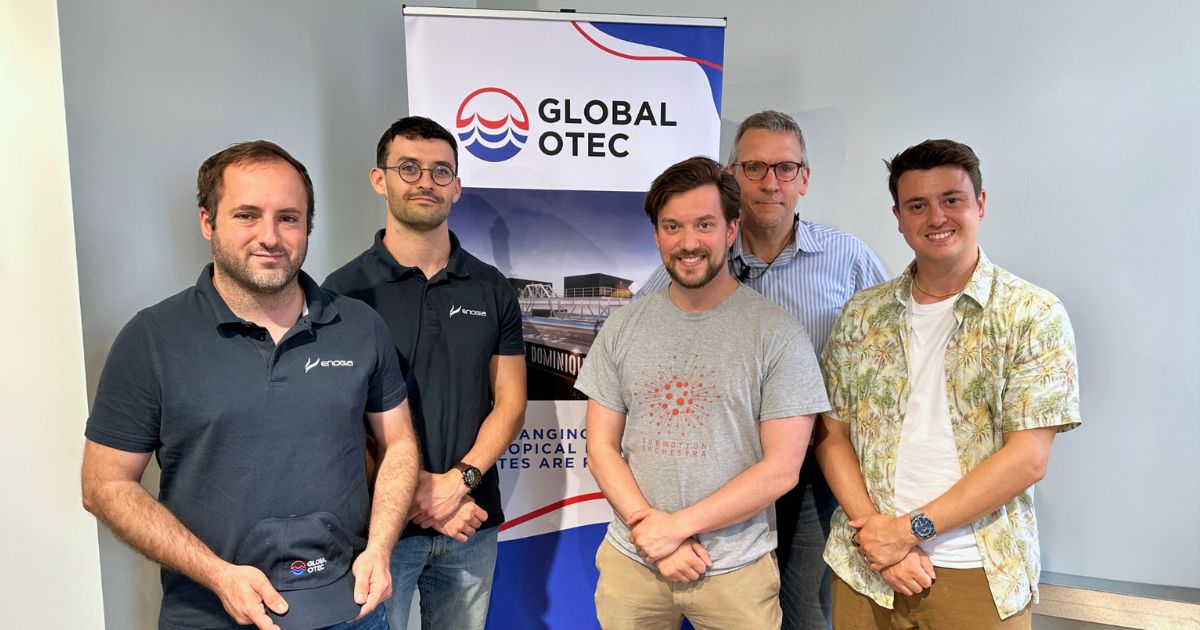Global OTEC Resources and ENOGIA have signed a memorandum of understanding (MOU) to develop key subsystems of the first commercial-scale Ocean Thermal Energy Conversion (OTEC) floating platforms.
Based in London, UK, and Marseille, France, respectively, the companies will be working together for the development of Dominique, the 1.5MW floating OTEC platform that will be installed in São Tomé and Príncipe, in the Gulf of Guinea, Africa, in 2025. This collaboration is a significant step towards bringing energy security to tropical islands and liberating them from costly diesel fuel imports and providing baseload power from the ocean with zero CO2 emissions.
The partnership combines Global OTEC’s expertise in ocean energy and OTEC projects, as both a technology and project developer, and ENOGIA’s extensive competence in turbine and Organic Rankine Cycle (ORC) manufacturing. Starting with a site visit to ENOGIA’s factory in Marseille in February of this year and followed by a meeting in London at the end of June, the collaboration is now ready to move forward and begin building critical components for Dominique.
“ENOGIA hold exemplary technical expertise and production capacity to advance the development of our OTEC platforms. Their knowledge of ORC systems is extremely relevant to our OTEC plants. We are convinced that their diligence and high standards will produce assets which can withstand the test of time offshore.” says Global OTEC Founder and CEO Dan Grech.
Founded in 2009 and publicly listed on Paris’s Euronext Growth market in 2021, ENOGIA designs and manufactures Organic Rankine Cycle (ORC) systems, which convert waste heat into electricity. In the case of Dominique, this heat comes from a working fluid boiled by the naturally warmed surface seawater.
 OTEC demonstration plant engineered and built by ENOGIA. (Image credit: Global OTEC/ENOGIA)
OTEC demonstration plant engineered and built by ENOGIA. (Image credit: Global OTEC/ENOGIA)
"OTEC is a very promising solution for renewable baseload energy production on islands. Compared to other renewable energies, it is one of the few which allow stable output no matter the weather conditions and does not require extensive storage systems. Thanks to our deep experience, including the engineering and construction of an ‘OTEC Lab’ demonstrator, and the supply of specialist turbines, ENOGIA has the skill set in the design of low delta-T Organic Rankine Cycle (ORC) systems and expanders, which is complementary to the ‘dream team’ Global OTEC is building to be the first successful OTEC company", says Arthur Leroux from ENOGIA.
The collaboration builds on ENOGIA’s previous experience building and operating an OTEC lab in the South of France for demonstration purposes.
The first commercial OTEC plant will be located in the Gulf of Guinea, using temperature gradients of about 20 degrees Celsius to run. While the warm surface water (24 to 28 degrees Celsius) is used to heat the working fluid and spin the turbine, the cold deep water (5 degrees Celsius) is used to cool down the process, which runs continuously, 24/7, all year round. The electricity generated from Dominique will power local communities and businesses in São Tomé and Príncipe, with the capacity being expanded with the implementation of subsequent platforms.
The partnership is expected to help to make OTEC a more viable and cost-effective option for renewable power generation worldwide. The technology is available across all of the tropical areas of the ocean, where the water depths can reach at least 1000 meters. This comprises over 100 territories that can be powered by the ocean.


